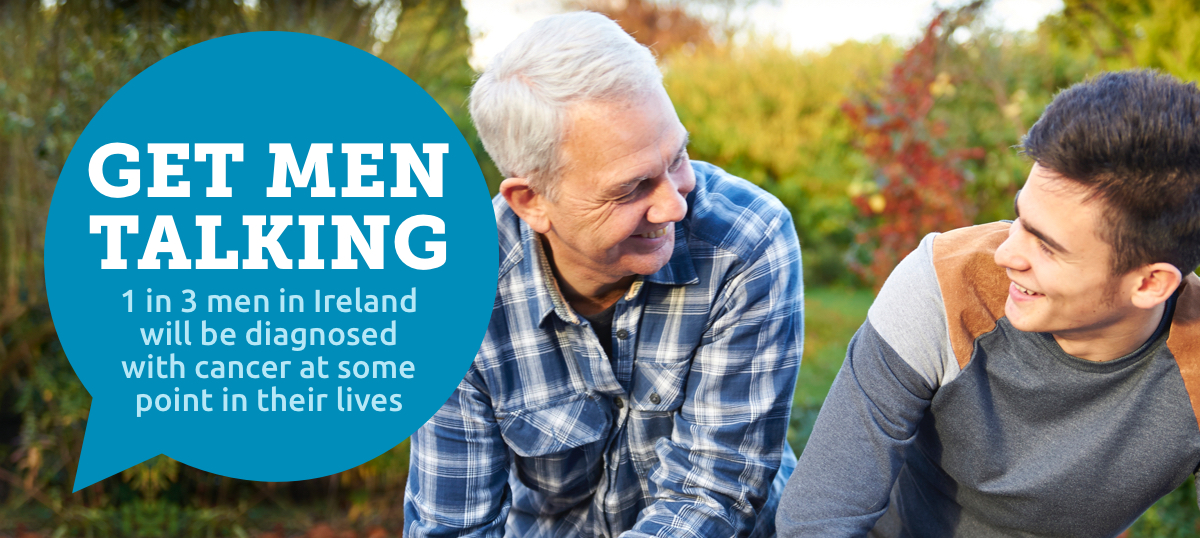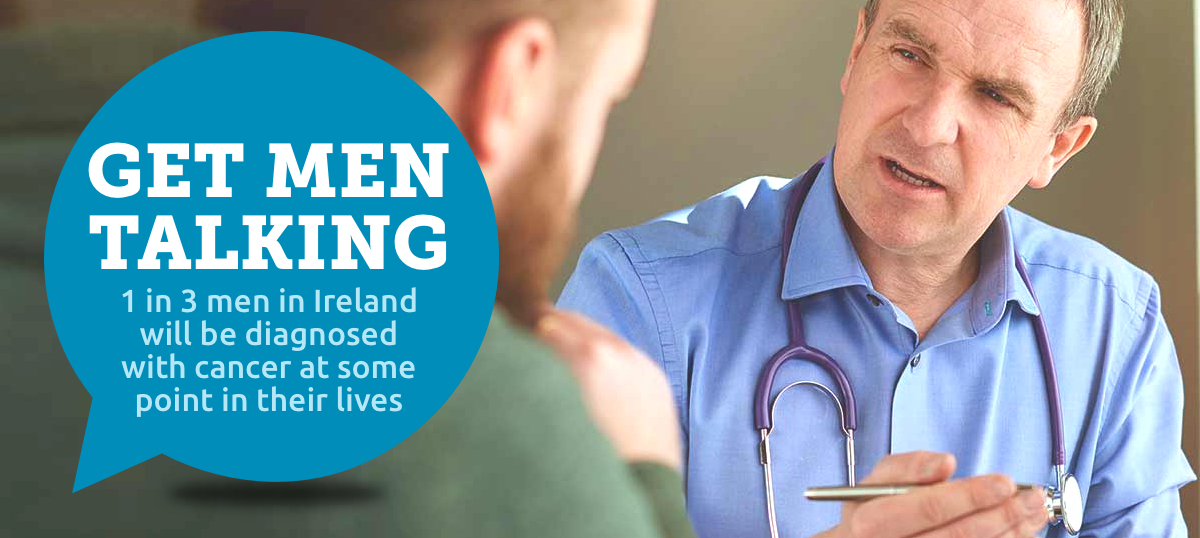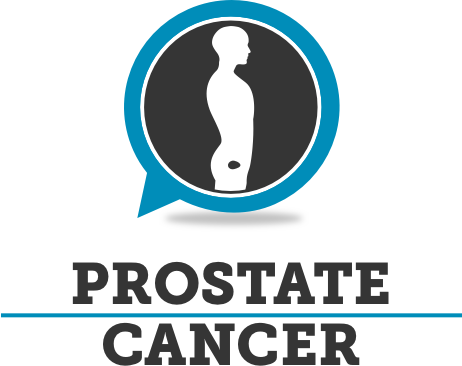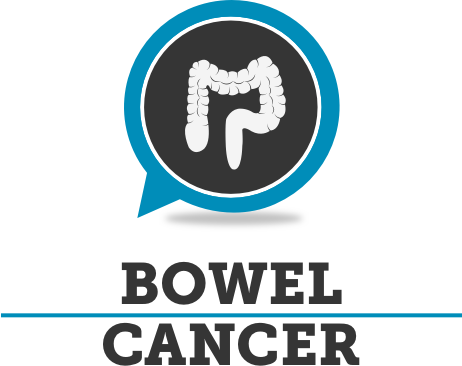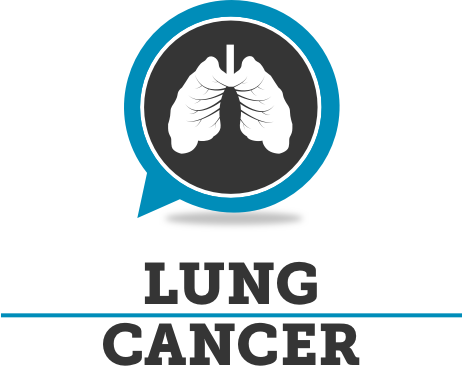
Stand Up For Your Prostate 2021
This Blue September, we are asking the men of Ireland to once again Stand Up For Your Prostate, and get your PSA checked once you reach the age of 50 or at 45 if you have a family history of Prostate or Breast Cancer. It takes five minutes and could save your life.
This September, with the kind support of Astellas, the Stand Up for your Prostate campaign is sharing the stories of prostate cancer survivors Colm, Kevin, Raymond and Thomas. These four courageous men are sharing how prostate cancer impacted their lives, and ask their fellow men, or those born with a prostate, to take their health seriously, get their PSA checked, and catch prostate cancer early.
Each year in Ireland, 3,890 people are diagnosed with prostate cancer, making it the most common cancer in Ireland excluding non-melanoma skin cancer. With the startling fact that 1 in 6 men will be affected by prostate cancer in their lifetime, the Marie Keating Foundation are asking men to get to know the signs and symptoms of prostate cancer, and seek information about their PSA once they turn 50, or 45 with a family history of prostate cancer, or breast cancer.
 “When detected early, prostate cancer is so treatable, with a five year survival rate of 92%. The challenge is getting people to their GP to talk about their health and the PSA test. It is our hope that this campaign, with four incredible testimonials from people who have gone through their own journey, will be what men need to encourage them to go to their GP, start a conversation about PSA testing, and take the next steps to looking after their prostate health. Director of Nursing Services Helen Forristal
“When detected early, prostate cancer is so treatable, with a five year survival rate of 92%. The challenge is getting people to their GP to talk about their health and the PSA test. It is our hope that this campaign, with four incredible testimonials from people who have gone through their own journey, will be what men need to encourage them to go to their GP, start a conversation about PSA testing, and take the next steps to looking after their prostate health. Director of Nursing Services Helen Forristal
Each of our ambassadors have bravely shared their stories this Blue September as a part of the Stand Up For Your Prostate campaign. To read each of their stories in full, click the icons below.
A PSA or Prostate-specific antigen test is a simple blood test that monitors possible changes in your prostate which may need further investigations and follow up. By having regular PSA levels checked as instructed by your GP or Urologist, it can help to detect prostate problems or cancer in it’s earliest stages, even if you are experiencing no symptoms.
 “The difficult aspect about prostate cancer is that often times, the symptoms associated with the disease like difficultly passing urine, a need for more frequent urination, feeling like you are not completely emptying your bladder when urinating or getting up more than twice a night to urinate, can often be overlooked, or often aren’t experienced at all. That is why PSA testing and having that conversation is so important. I’m proud to support the Marie Keating Foundation’s Stand Up For Your Prostate campaign and would encourage all men to take that first step in prostate cancer early detection.” Urology Consultant at St. Vincent’s Hospital Private, Dr David Galvin
“The difficult aspect about prostate cancer is that often times, the symptoms associated with the disease like difficultly passing urine, a need for more frequent urination, feeling like you are not completely emptying your bladder when urinating or getting up more than twice a night to urinate, can often be overlooked, or often aren’t experienced at all. That is why PSA testing and having that conversation is so important. I’m proud to support the Marie Keating Foundation’s Stand Up For Your Prostate campaign and would encourage all men to take that first step in prostate cancer early detection.” Urology Consultant at St. Vincent’s Hospital Private, Dr David Galvin
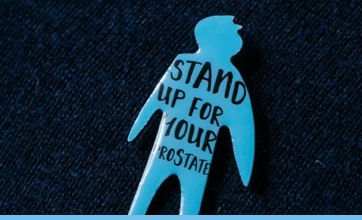
Kindly supported by:

Stand Up For Your Prostate 2020
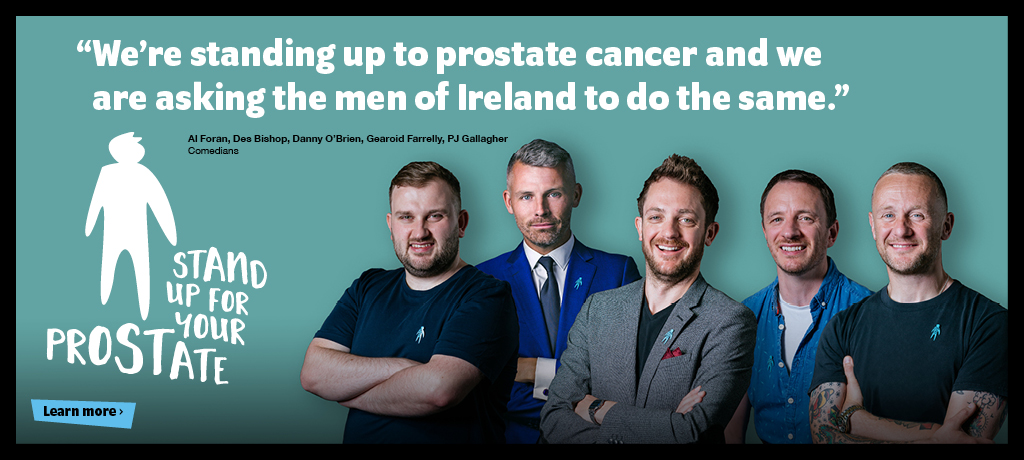
The Marie Keating Foundation campaign aims to increase awareness of prostate cancer and asks men to "step up to the mic" when it comes to speaking about their health
The second instalment of the Marie Keating Foundation’s ‘Stand Up for Your Prostate’ campaign seeks to open up the discussion about prostate cancer and encourages men to seek advice for their GP If they notice any changes in their bodies, or when they reach the age of 50 or 45 with a family history of prostate cancer.
Sponsored by Astellas, this campaign hopes to increase awareness of what is the most common cancer in men (after non-melanoma skin cancer) in Ireland during Blue September and raise vital funds to support the 3,665 men diagnosed with the disease every year.
Five of Ireland’s most talented comedians including New York comic Des Bishop, comedian and presenter PJ Gallagher, impressionist Al Foran and stand up stars Danny O’Brien and Gearoid Farrelly all stood up to the mic to talk about the importance of prostate cancer awareness, and are now asking you to do the same.
To watch each of our ambassadors videos, and to see some of Al’s celebrity friends, and their view on men’s health and prostate cancer click on the faces below.

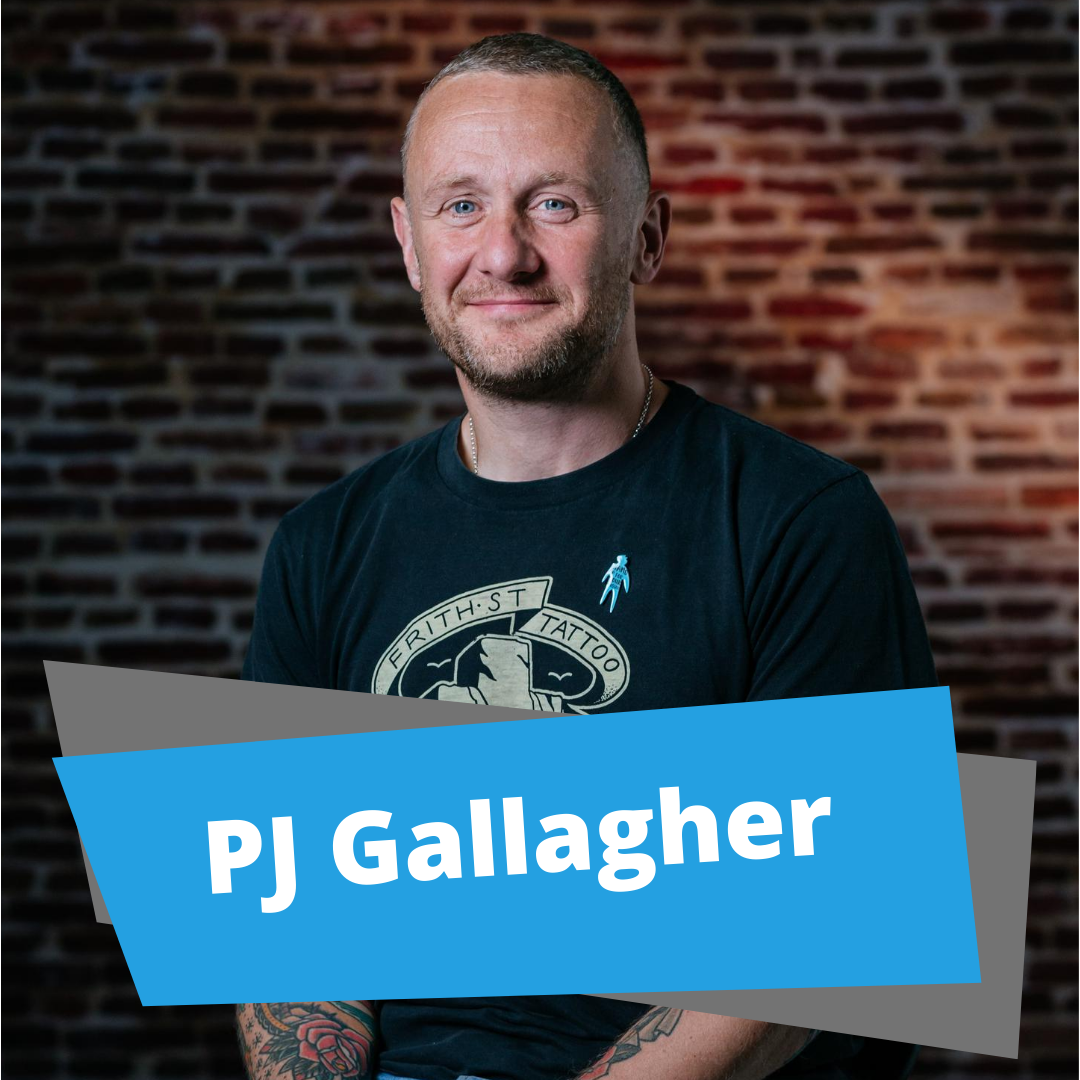



The Marie Keating Foundation’s Stand Up For Your Prostate campaign is proudly supported by:
![]()
Stand Up For Your Prostate 2019
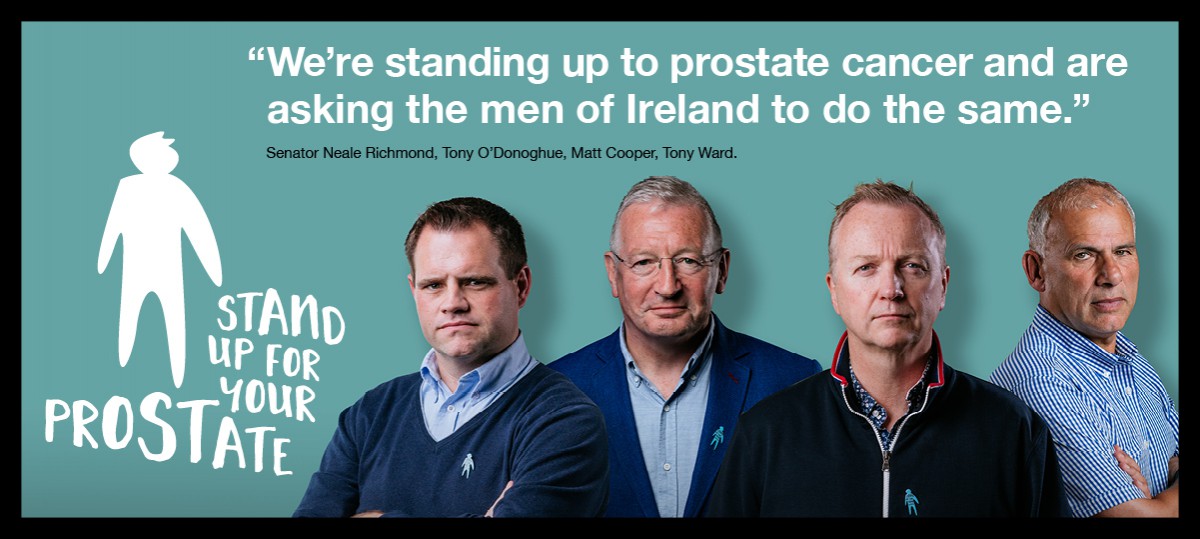
The Marie Keating Foundation campaign aims to increase awareness of prostate cancer and encourages men to WATCH, TALK and ACT
The Marie Keating Foundation’s ‘Stand Up for Your Prostate’ campaign is looking to empower Irish men to be more open and comfortable discussing their health. Sponsored by Astellas, the integrated campaign hopes to increase awareness of what is the most common cancer in men (after non-melanoma skin cancer) in Ireland during Blue September and raise vital funds to support the 3,550 men diagnosed with the disease every year.
Six men, including broadcasters Tony O’Donoghue and Matt Cooper, politician Senator Neale Richmond and rugby legend and journalist Tony Ward, who have all been affected by cancer in some way, are backing the campaign, encouraging men not to put their health on the long finger.
To watch each of our ambassadors videos, and read their stories in full, click on the faces below, and find out how prostate cancer has touched their lives.
We want the men of Ireland to unite in the same way women have against breast cancer. There is so much evidence to show that men are still reluctant when it comes to getting checked and discussing their health. More than three-quarters of men asked in a recent Marie Keating Foundation survey said they had never had a conversation with a close male family relative about their prostate health. Considering it is the most common cancer amongst men and you are 2.5 times more likely to get prostate cancer if a father, uncle or brother has had it, this statistic is worrying.
The Marie Keating Foundation’s Stand Up For Your Prostate campaign is proudly supported by:
![]()
Get Men Talking 2017
Men are more likely to talk about the news, sports or the weather than they are about their health. But it’s time to Get Men Talking because 1 in 3 men in Ireland will be diagnosed with cancer at some point in their lives even though many cancers can be prevented and most treated successfully if caught early.
Most common cancers affecting men
The cancers that most often affect men in Ireland are prostate, bowel, lung, and skin cancers. Testicular cancer is the most common cancer in men aged 15-34. Knowing about these cancers, what to look out for and what you can do to help prevent them or find them early (when they are small and easier to treat) may help save your life.
This website has lots of information about how to reduce your risk of these common cancers and how to spot the symptoms early. It also has advice on what questions to ask your GP if you would like to talk to him or her about cancer.
Remember, if you have any concerns about your health, the most important thing to do is talk to your GP.
Arrange a visit from a Marie Keating Foundation nurse for your workplace, community centre or town
It’s time to Get Men Talking
Prostate cancer
Prostate cancer is the most common male cancer in Ireland. One in eight men here will be diagnosed with it. Your chances of getting prostate cancer go up as you get older so if you’re over 50, talk to your GP about the PSA blood test every year. It’s quick, simple and your doctor will not need to perform a digital exam if your PSA is normal!
Prostate cancer can run in families. You need to be extra sure to talk to your GP about prostate cancer and the PSA blood test if your father, brother or uncle has had prostate cancer. You should also get your PSA levels checked if your mother or sister has had BRAC 1 or BRAC 2 breast cancer- this is the type of breast cancer that is caused by the ‘Angeline Jolie gene.’
Read more about the causes, symptoms and risk factors for prostate cancer here.
Bowel cancer
Bowel cancer is one of the most common cancers in Ireland. Over 1,440 Irish men are diagnosed with it every year.
It’s also known as colon cancer, rectal cancer, or colorectal cancer – depending on where in the bowel the tumour is.
Bowel cancer is usually diagnosed in people over the age of 55.
Your chance of developing bowel cancer is increased if you drink alcohol, smoke, are overweight, do not exercise, and eat a lot of red meat or processed foods.
Bowel cancer can be hereditary. If someone in your family has bowel cancer, you have a higher chance of developing it.
BowelScreen – The National Bowel Screening Programme offers free home test kits to men and women in Ireland aged 60 to 69 every two years. The BowelScreen programme will, over time, be offered to all people aged 55 to 74.
Find out more about the causes, symptoms, risk factors and free screening for bowel cancer.
Lung cancer
Of all the cancers, lung cancer is the biggest killer in Ireland.
Nearly 1,300 men are diagnosed with lung cancer every year in Ireland. Most lung cancers are due to smoking so if you do smoke, quit now. Visit Quit.ie or Freephone 1800 201 203
Lung cancer doesn’t display many symptoms in its early stages. But once the cancer develops, it will start to affect the lungs, and the symptoms may include:
- A persistent, worsening cough
- Coughing up excessive phlegm with blood
- Chest pain with coughing or breathing
- Recurring chest infections
- Weight loss
Find out more about the signs and symptoms of lung cancer as well as the risk factors.
Skin cancer
Women are more likely to get skin cancer than men. But men are more likely to die from it.
Skin cancer is the most common cancer in Ireland. You can prevent skin cancer by being SunSmart:
- Always wear sunscreen
- Sunscreen with UVA protection
- Avoid the sun between 11am and 3pm
- Wear protective clothing
- Never, ever use sunbeds
Check your skin regularly to see if any of your moles or freckles have changed in colour or size. If they have, talk to your GP straight away.
Find out more about the signs of skin cancer and how to prevent it.
Testicular cancer
Testicular cancer is the presence of cancer cells or a cancerous growth in or on the testicles.
Testicular cancer is the most common cancer in young men aged 15-34. However, it’s actually very rare and it’s very treatable if caught early enough.
You can’t do anything to prevent it but you can catch it early. That’s why you should check your testicles every month to make sure they are smooth, firm and comfortable. They should not feel lumpy or painful.
Remember, most abnormalities or lumps in your testicles turn out not be cancer, but if you notice anything unusual, get it checked out by a doctor straight away to make sure.
Find out more about testicular cancer.
The Marie Keating Foundation’s Get Men Talking campaign is proudly supported by:
![]()
Heroes of Hope 2016

![]()
Stories of prostate cancer survival
This year, over 3,400 men in Ireland will hear the words, “You have prostate cancer.” However, for most, such a diagnosis does not mark the end of their journey. Thanks to early detection and advances in treatment, there are over 26,000 prostate cancer survivors in Ireland today. Over 90% of men diagnosed with the disease will survive.
While coping with cancer treatment can be difficult, the Marie Keating Foundation is shining a light on these stories of prostate cancer survival to give hope and support to men affected by the disease. The Heroes of Hope – Stories of Prostate Cancer Survival exhibition tells the stories of 15 men who have survived prostate cancer. They are from different counties, do different jobs, are of all ages and each has travelled their own individual cancer journey. Because just like prostate cancer, we know that no survivor’s journey is the same.
Our 15 Heroes of Hope have one thing in common: they are living proof that while being diagnosed with prostate cancer will change your life, there is life after prostate cancer.
Prostate Cancer Resources
For more information about prostate cancer and its signs and symptoms click here
For a leflet on what you should know about prostate cancer click here
To read our booklet on diagnosis and recovery click here
For a free copy of our Get Men Talking infographic, click here.
Donate to Marie Keating
We hope you found this information useful. The Marie Keating Foundation offers all of our services for free. Help support people at every step of a cancer journey by making a donation today.
DONATE











